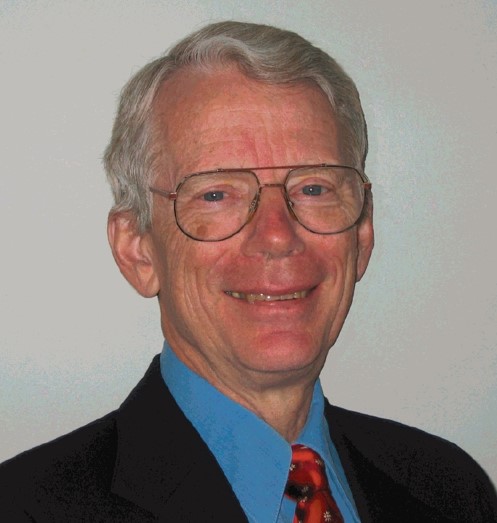报告题目:44 Years in Process Systems Engineering
报告人:Prof. Arthur W. Westerberg, Carnegie Mellon University
时间🤳🏻:10月10日(周二)14:30
地点:工物馆324A会议室
主持人:陈丙珍院士
Abstract
 The talk aims at reviewing the history of Process Systems Engineering (PSE), and also Prof Arthur W. Westerberg professional career since 1959. In that year, he started to write a program to analyze an experiment on Univac 1101 computer when he was an undergraduate student at the University of Minnesota. From 1961, during his PhD with Prof. Roger Sargent, he started the research of process modeling and simulation. He created an efficient flowsheet tearing algorithm, which became the basis of Simsci’s, gPROMS’ and Aspen’s systems. Then he extended his research interests into process optimization and modeling languages and debugging aids for large engineering models, which became the third generation and following ASCEND software. He also started another PSE track in process synthesis to describe using the computer to invent flowsheets, such as heat exchanger networks. He used AI methods in design and synthesis, and created the SPLIT system, which formed the bases of the AspenPlus software of the same name to design separation processes for azeotropic systems. Then he started by working on and sharing simulation, optimization and AI ideas across eleven disciplines to create new and better tools to support design calculations and synthesis. He will also talk about a very different path – how to support collaboration and how to support the organization of tons of information in ways that would be useful in early design using computer supported tools. All this seems quite different from simulation and optimization that form the basis of process engineering, does it not? These are part of the broader activity of designing. But the decisions made in these early stages are much more critical to the success of a design than any made later. These early decisions point us to the integer programming based synthesis, the simulation and the optimization we must then do in later steps in designing. The talk will end by restating some of the unsolved problems that Prof Arthur W. Westerberg saw even within PSE.
The talk aims at reviewing the history of Process Systems Engineering (PSE), and also Prof Arthur W. Westerberg professional career since 1959. In that year, he started to write a program to analyze an experiment on Univac 1101 computer when he was an undergraduate student at the University of Minnesota. From 1961, during his PhD with Prof. Roger Sargent, he started the research of process modeling and simulation. He created an efficient flowsheet tearing algorithm, which became the basis of Simsci’s, gPROMS’ and Aspen’s systems. Then he extended his research interests into process optimization and modeling languages and debugging aids for large engineering models, which became the third generation and following ASCEND software. He also started another PSE track in process synthesis to describe using the computer to invent flowsheets, such as heat exchanger networks. He used AI methods in design and synthesis, and created the SPLIT system, which formed the bases of the AspenPlus software of the same name to design separation processes for azeotropic systems. Then he started by working on and sharing simulation, optimization and AI ideas across eleven disciplines to create new and better tools to support design calculations and synthesis. He will also talk about a very different path – how to support collaboration and how to support the organization of tons of information in ways that would be useful in early design using computer supported tools. All this seems quite different from simulation and optimization that form the basis of process engineering, does it not? These are part of the broader activity of designing. But the decisions made in these early stages are much more critical to the success of a design than any made later. These early decisions point us to the integer programming based synthesis, the simulation and the optimization we must then do in later steps in designing. The talk will end by restating some of the unsolved problems that Prof Arthur W. Westerberg saw even within PSE.
Biography
Prof Arthur W Westerberg, a “Giant” in the field of Process Systems Engineering (PSE). When he obtained his Bachelor degree (Chemical Engineering) from University of Minnesota in 1960, Art was advised by Prof Neal Amundson to seek out the best graduate education he could found. After one-year transition in Princeton, he moved to Imperial College London to study for his PhD working with Prof Roger Sargent. After receiving his PhD in 1964, Art joined Control Data Corporation in San Diego as a systems analyst. In 1967, Art went to the University of Florida and began his academic career in process systems engineering. Starting from 1976, Art is a professor at the department of chemical engineering of Carnegie Mellon University. Now he is University professor, the highest level of faculty at Carnegie Mellon. Art is the member of National Academy of Engineering. During his professional career, he received numerous awards from AIChE, ACS and among others. For example, he received William H. Walker Award from AIChE in 1987, AIChE founders Award in 1995, E. V. Murphree Award from ACS in 1997, Warren K. Lewis Award from AIChE in 2009. Art supervised 41 Ph.D students. Art Westerberg has the largest Academic Family Tree in US. Now this tree includes more than 1100 Scientists and Engineers with PhD degree containing more than 120 professors around the world, there are three members of National Academy of Engineering US, one member of National Academy of Medicine US, one member of Royal Academy of Engineering UK.